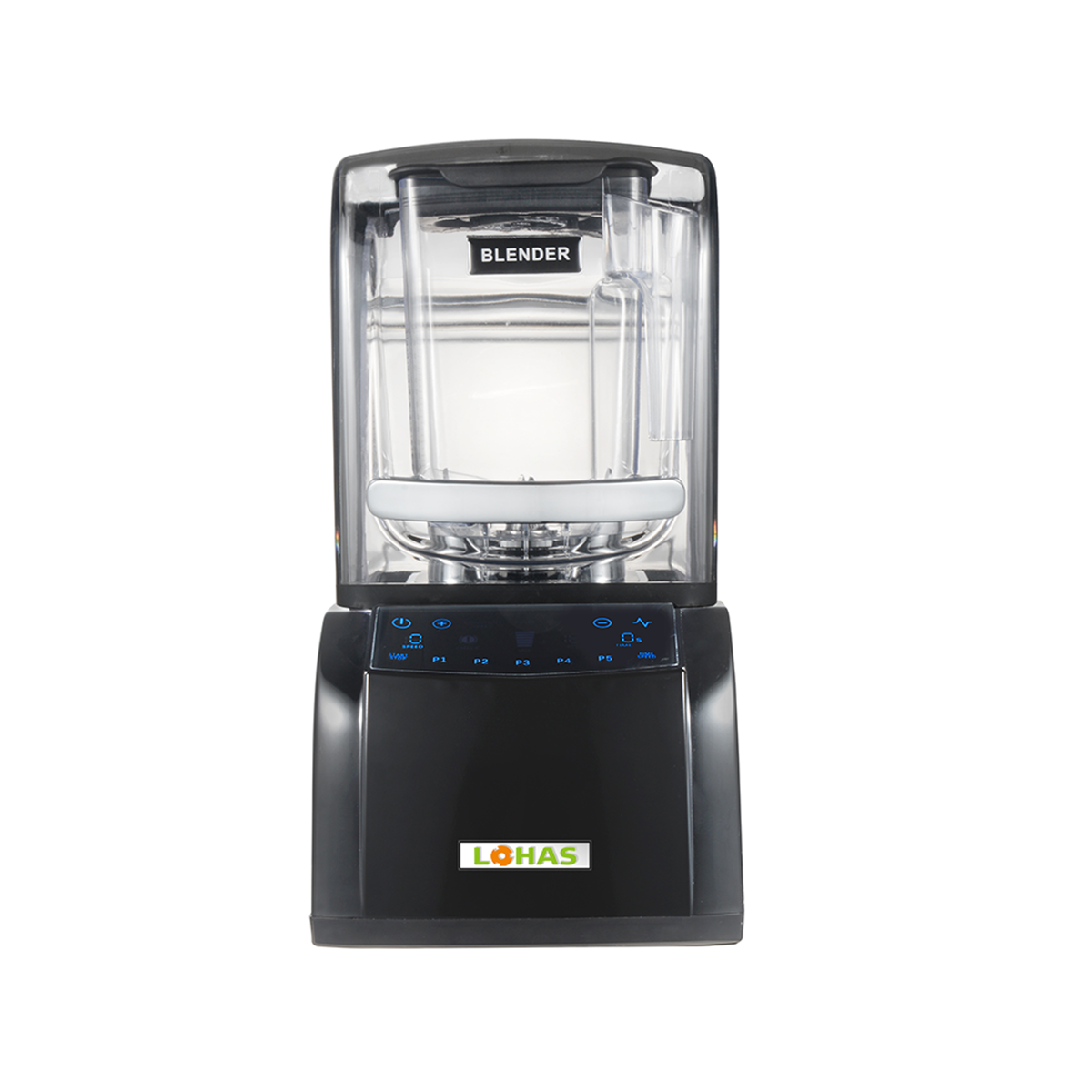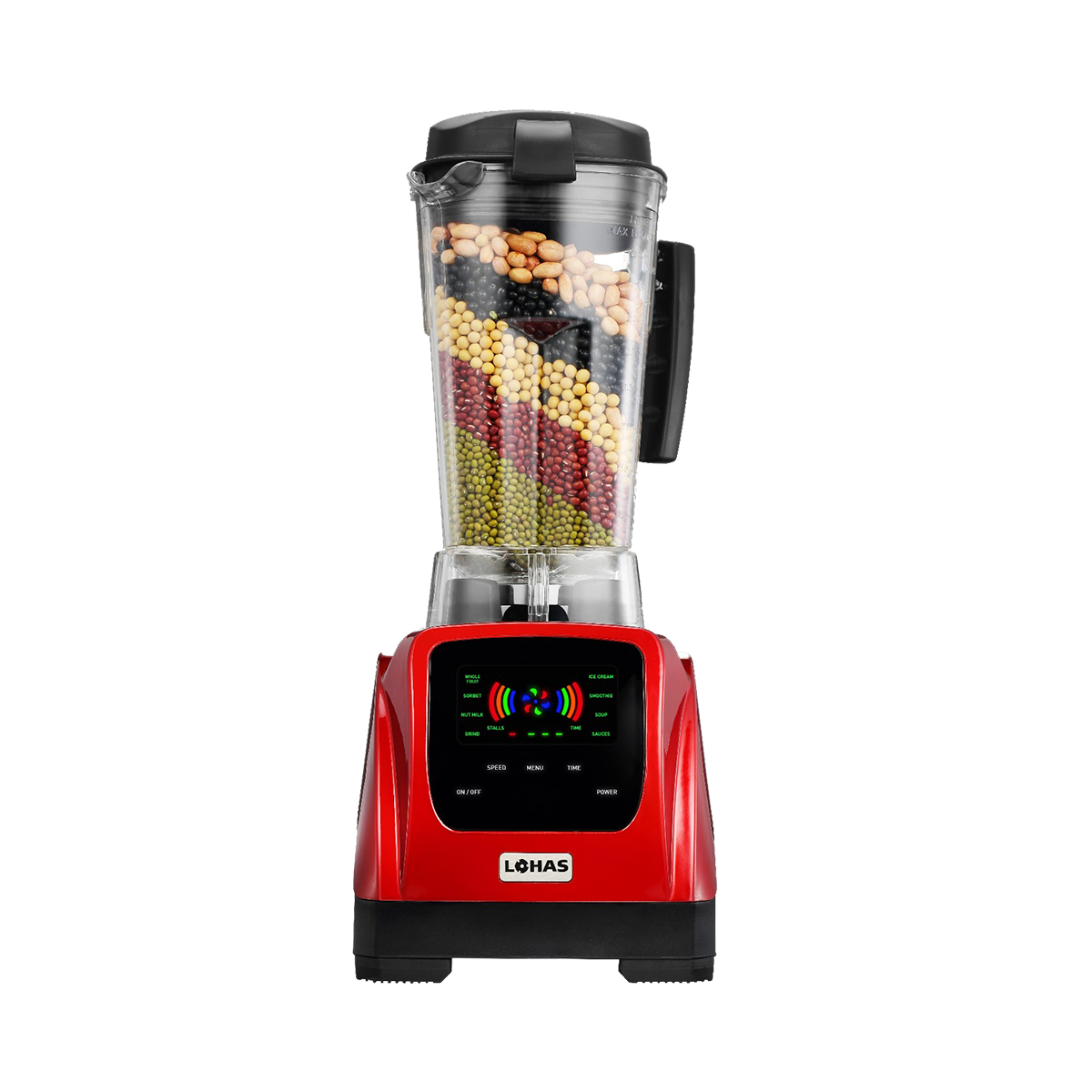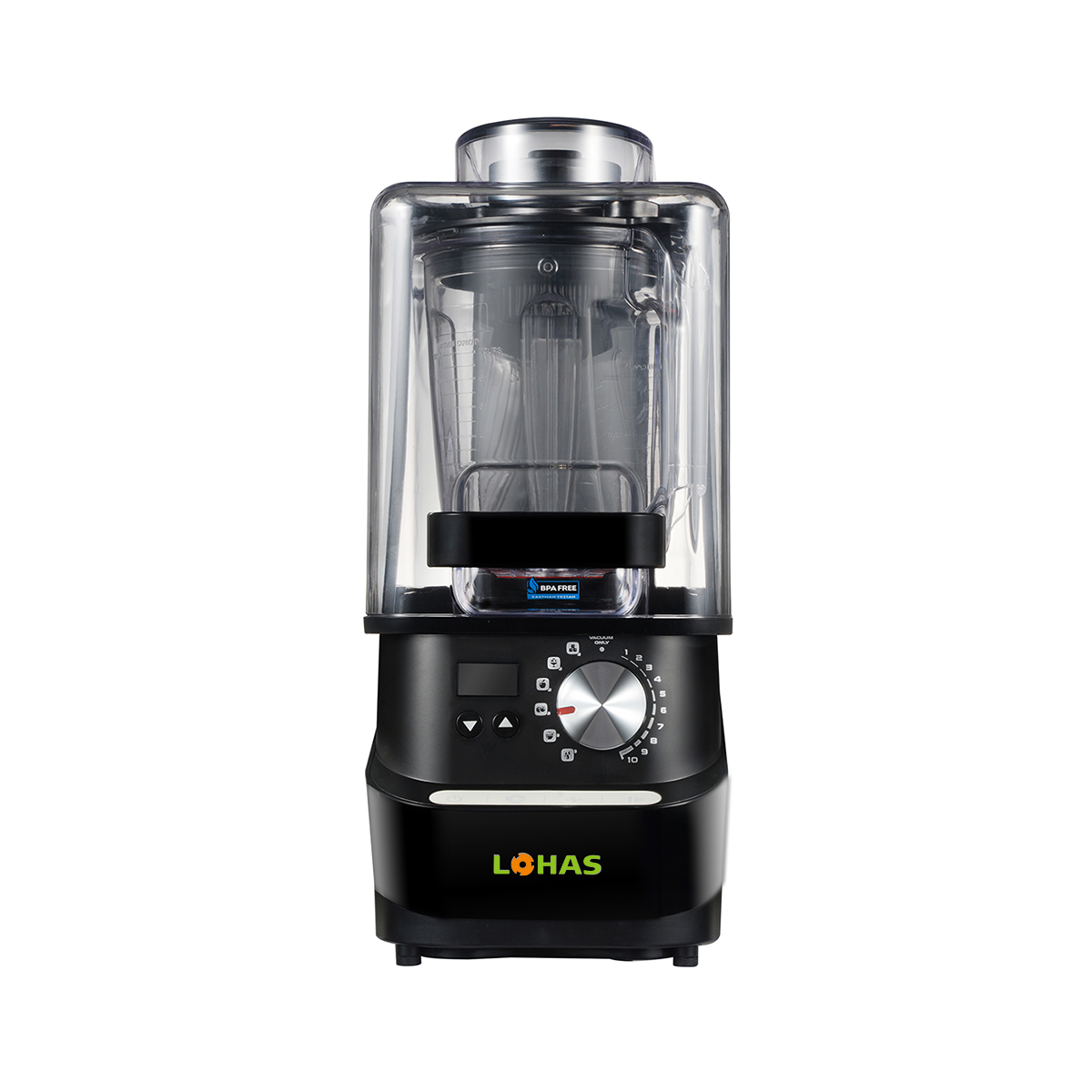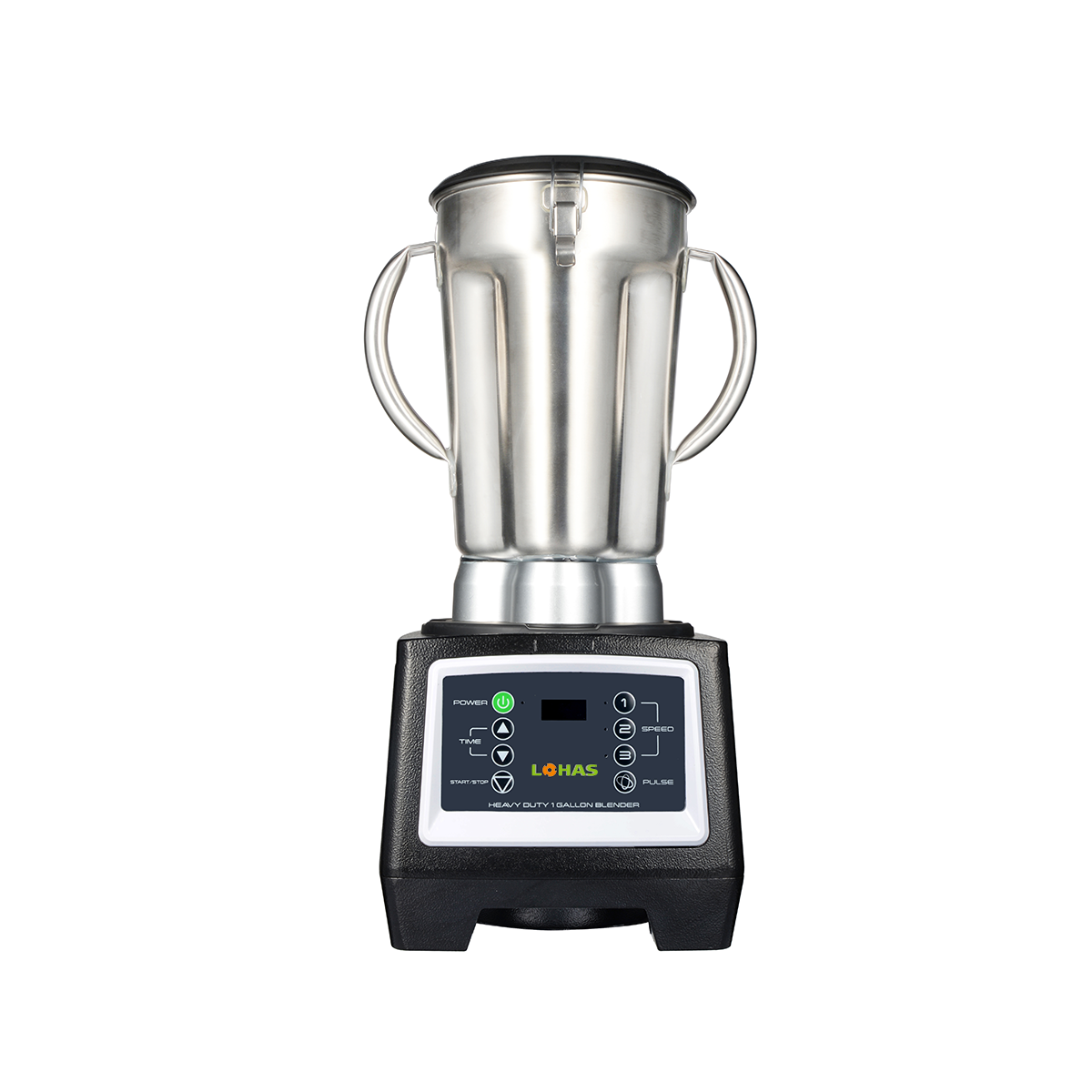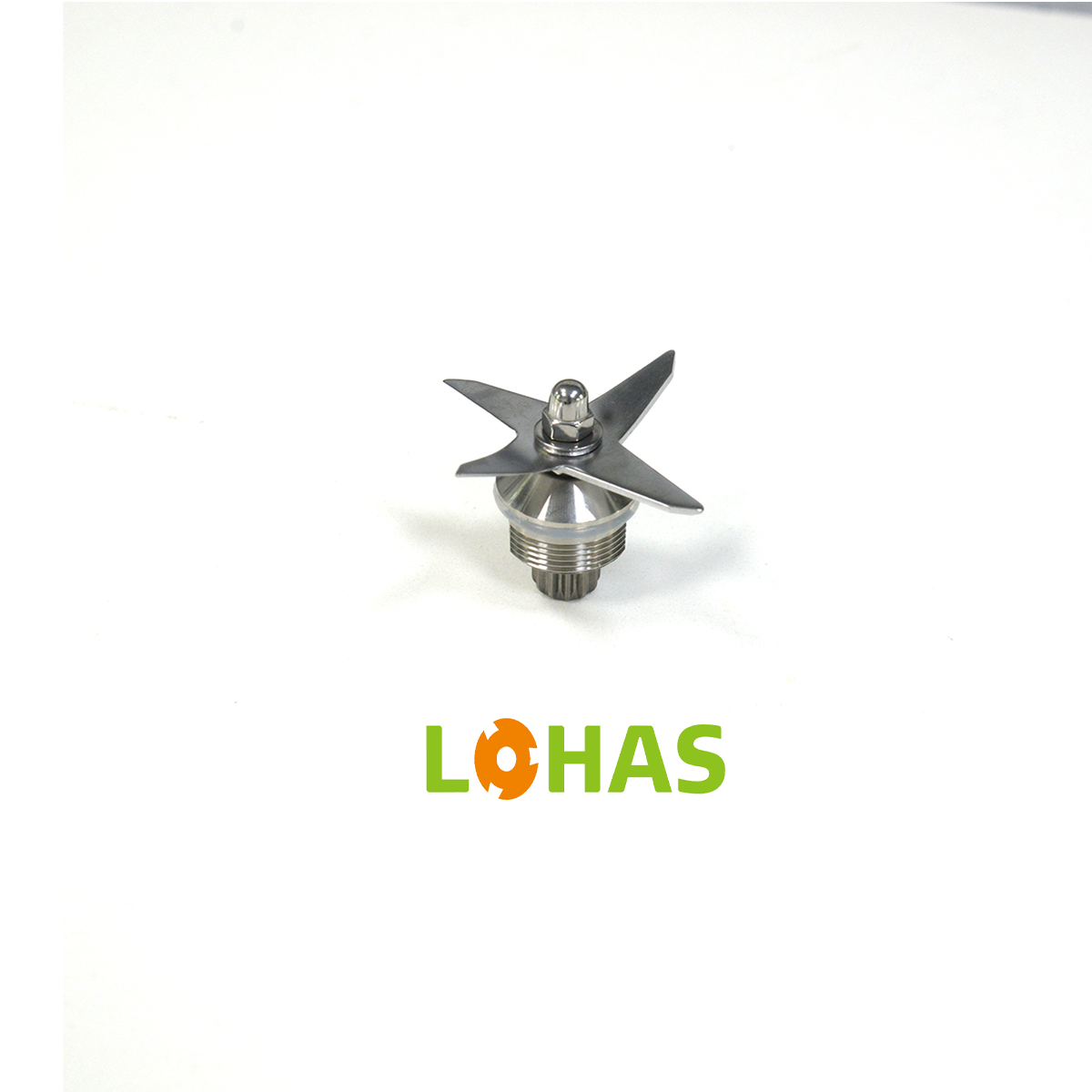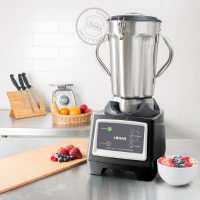Typical Uses and Features
When you think of a regular blender, you probably picture the one sitting on your kitchen counter. These blenders are perfect for everyday tasks. You can use them to make smoothies, soups, and sauces. They often come with basic features like a few speed settings and a pulse function. Most regular blenders have a power rating of around 175 watts, which is enough for blending soft fruits and vegetables. They usually have a simple design, making them easy to use and clean. If you need a blender for basic kitchen tasks, a regular blender is a great choice.
Performance and Limitations
Regular blenders perform well for most home cooking needs. You can blend soft ingredients with ease. However, they have limitations. Their motors aren't powerful enough for heavy-duty tasks. Crushing ice or blending hard vegetables can strain the motor. You might notice that regular blenders struggle with thick mixtures. They can overheat if used for long periods. If you need to blend tough ingredients often, you might find a regular blender lacking in performance.
Cost Considerations
One of the biggest advantages of regular blenders is their cost. They are affordable and fit most budgets. You can find a decent regular blender for a reasonable price. This makes them accessible to many people. However, cheaper models might not last as long. You might need to replace them sooner than you'd like. Investing in a slightly more expensive regular blender can offer better durability and performance. Consider your budget and how often you'll use the blender when making your choice.
Exploring Heavy-Duty Commercial Blenders
Capabilities and Applications
Heavy-duty commercial blenders are powerhouses in the kitchen. You can use them for a wide range of tasks that go beyond what regular blenders can handle. These blenders excel at crushing ice, grinding nuts, and blending thick mixtures. They often come with advanced features like programmable settings and high-capacity containers. This makes them ideal for busy restaurants and cafes. If you need to prepare large batches of smoothies, soups, or sauces, a commercial blender is your best bet. You’ll find that these blenders can tackle tough ingredients with ease, making them versatile tools for any culinary challenge.
Performance and Durability
When it comes to performance, heavy-duty commercial blenders stand out. They boast powerful motors, often with ratings as high as 1440 watts. This means you can blend even the toughest ingredients without worrying about overheating or motor strain. The construction of these blenders is robust, designed to withstand frequent use in demanding environments. You’ll appreciate their consistent performance, whether you’re blending for a few minutes or several hours. The durability of commercial blenders ensures they last longer, providing reliable service day in and day out. If you need a blender that can keep up with high-volume demands, a commercial model is the way to go.
Cost Implications
Investing in a heavy-duty commercial blender comes with a higher price tag. You’ll find that these blenders cost more than regular ones due to their superior performance and durability. However, the investment pays off in the long run. You get a machine that can handle rigorous tasks and last for years. If you run a business or frequently blend large quantities, the cost becomes justified. Consider the value you get from a commercial blender. It’s not just about the initial expense but the long-term benefits. You’ll save time and effort, making it a worthwhile addition to your kitchen arsenal.
Comparative Analysis
Power and Capacity
When you compare a regular blender to a heavy-duty commercial blender, power and capacity stand out. Regular blenders usually have a power rating of around 175 watts. This is enough for basic tasks like making smoothies or soups. However, commercial blenders pack a punch with power ratings that can reach up to 1440 watts. This means they can handle tougher ingredients like ice and nuts without breaking a sweat.
Capacity also differs significantly. Regular blenders often come with smaller containers, suitable for personal use. In contrast, commercial blenders feature larger containers. This makes them perfect for preparing big batches, ideal for restaurants or large families. If you need to blend large quantities or tough ingredients, a commercial blender offers the power and capacity you need.
Durability and Longevity
Durability is another key difference between these two types of blenders. Regular blenders are designed for occasional use. They work well for everyday kitchen tasks but may wear out faster if used heavily. On the other hand, commercial blenders are built to last. Their robust construction can withstand frequent use in demanding environments.
You’ll find that commercial blenders have stronger motors and more durable components. This ensures they perform consistently over time. If you want a blender that can endure heavy use and last for years, a commercial model is the better choice. It provides reliability and longevity, making it a valuable investment.
Cost and Value
Cost is an important factor when choosing between a regular blender and a commercial one. Regular blenders are budget-friendly. They offer good value for everyday use without breaking the bank. However, they might not last as long, especially if used for heavy-duty tasks.
Commercial blenders come with a higher price tag. But they offer excellent value for those who need their capabilities. The initial investment pays off with their superior performance and durability. If you blend frequently or need a machine for professional use, the cost of a commercial blender becomes justified. You get a reliable tool that saves time and effort, providing great value in the long run.
Choosing the Right Blender for Your Needs
Assessing Personal Requirements
When deciding between a regular blender and a heavy-duty commercial blender, start by assessing your personal needs. Think about how often you blend and what types of ingredients you use. If you mostly make smoothies or soups with soft fruits and vegetables, a regular blender might suit you just fine. It handles everyday tasks well and fits into most budgets.
However, if you frequently blend tougher ingredients like ice or nuts, or if you prepare large batches, consider a commercial blender. Its powerful motor and larger capacity can save you time and effort. Also, think about the space in your kitchen. Regular blenders are usually more compact, while commercial ones might require more room.
Making an Informed Decision
Once you've assessed your needs, it's time to make an informed decision. Compare the features and benefits of each type of blender. Look at the power ratings, capacity, and durability. A regular blender offers simplicity and affordability, making it a great choice for basic tasks. On the other hand, a commercial blender provides superior performance and longevity, ideal for demanding tasks.
Consider your budget as well. While commercial blenders cost more upfront, they offer long-term value if you blend frequently or need their capabilities. Read reviews and ask for recommendations to ensure you choose a reliable brand. Ultimately, the right blender depends on your specific requirements and how you plan to use it. By understanding your needs and the options available, you can confidently select the best blender for your kitchen adventures.
In wrapping up, let's recap the key differences between regular and heavy-duty commercial blenders. Regular blenders suit everyday tasks with their simplicity and affordability. They work well for basic blending needs. On the other hand, commercial blenders offer robust performance and durability, ideal for demanding tasks and frequent use.
When choosing, consider your specific needs. If you blend occasionally, a regular blender might be your best bet. For frequent or heavy-duty blending, investing in a commercial blender pays off. Ultimately, the right choice depends on your blending habits and preferences.

